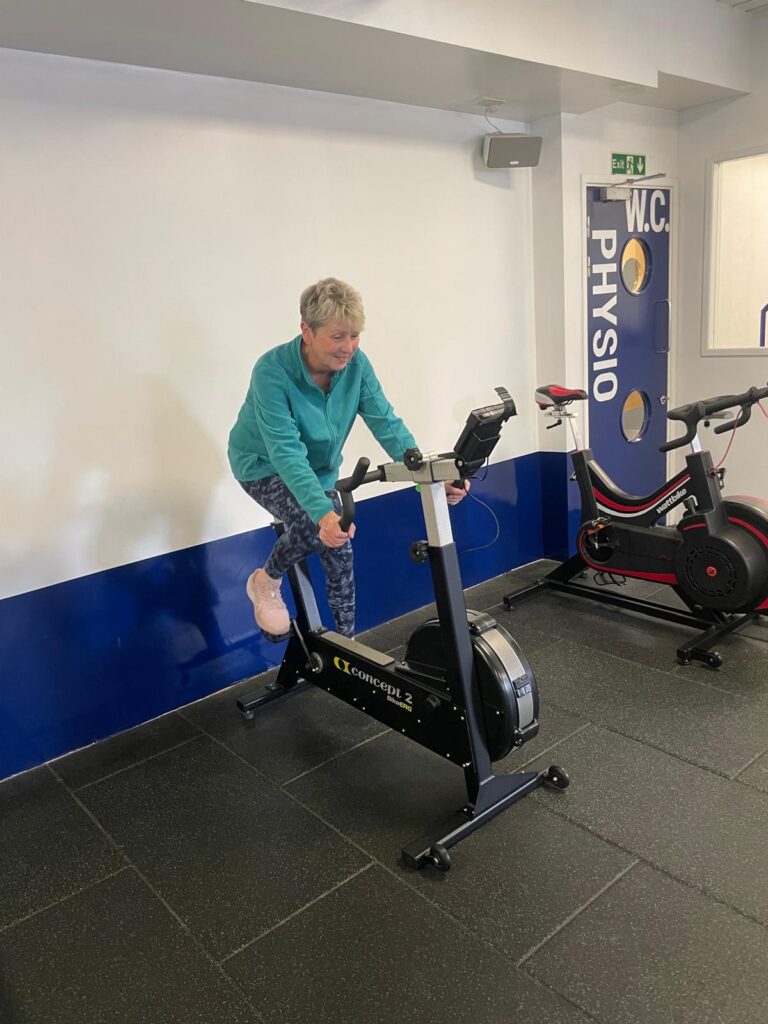If my mental health is suffering what may happen?
- You become irritable with loved ones
- You may be a little restless or feel stir-crazy
- Some people can go on to experience sleepiness
- Others have problems sleeping at night
- Many people may feel more angry than normal
- Feelings of helplessness may be another sign
- Your body may feel more tired and tense than normal
So what should you do:
Focus on one day at a time
Getting ahead of yourself and spending too much time in the future can make you feel overwhelmed and helpless. So look to create your future through putting in place helpful daily routines, contributions, achievements, and results.
For example, look to eat a balanced, healthy diet, or do some exercise first thing in the morning.
Set yourself some daily and weekly goals
Goal setting is a tried and tested method which many athletes and fitness fanatics use regularly. It can be very motivational and help to give you confidence. I’d encourage you to give it a go and use the SMART principles, Specific, Measurable, Attainable, Realistic and Time Framed.
You may even want to follow my lead.
My goals for last week were to do 20 minutes of indoor body weight exercises every day around my work and looking after two young boisterous boys. In the sessions, I went on to challenge myself with 40 mountain climbers and 40 press ups each day. As a result, I feel like I’ve achieved something and feel pretty good in myself; I’m now looking forward to attempting 45 of both exercises each day this week.
Focus on what’s available to you
When difficulties arise, it’s very easy to look at the things missing in your life. That might include being able to go to Momentum to train with our fantastic coaches, go out to work, train or practice your sport, grab a coffee in a costa with friends, go shopping for some nice clothes (if that’s your thing – it’s not mine!), or go off hiking for a day.
By looking at the things that you cannot do, it can paralyse you into feeling helplessness, where you find it very difficult to make decisions and take action. So when it comes down to fitness and exercise, I’d encourage you to think about what is available to you.
You’ll likely have enough room to lie down? If that’s the case you’re in business. You can do many bodyweight exercises where no equipment is needed.
Perhaps you don’t own any weights but have a rucksack in the wardrobe – could you fill it with some tins or other items to add some weight, so that you can do some lifting or more difficult squats?
Do you have space in your garden? Do some shuttle runs If you can’t get out for a run because of small children.
Or maybe you’re one of the lucky ones and have a rusty old treadmill, rowing machine or exercise bike in your house? Get using it!
Why should I bother exercising regularly?
Scientific evidence tells us that exercising is good for our mental health in the following ways:
General Well Being
With improved mental health there is likely to be a short term benefit, that will reinforce your exercise training. In other words, if you make daily exercise a priority you’ll remain more motivated, you’ll have increased energy levels, lower stress levels, and your mood will likely be lifted after exercise too.
Mood
Anxiety and depression could be side effects of such a tough period, and are common clinical disorders today. Exercise as a therapy can be a very useful treatment, to manage and overcome these disorders.
Sleep
Some people can experience sleeping issues when their life and routines are thrown into turmoil. Exercise can be very helpful in regulating sleeping patterns.
Self Esteem
A person’s self-concept and identity may be shifted significantly during this period. Perhaps you had a job that you loved, and now are in a position where you aren’t working or have become the main carer for the children. That is a big shift in identity in such a short time. This is where setting yourself some realistic goals and ensuring you have created an environment that promotes feelings of mastery, competence and positive body image, are important.
Cognitive Functioning
Exercise is great for our minds too. Even simply going out for a walk can be helpful and according to research is likely to reduce cognitive decline in older adults. Whether you are young or old, I’d encourage you to create a stimulating environment around you and challenge yourself, creating a brain and body workout. Making some exercises mentally complex, changing up your environment from time to time and trying different athletic drills that you don’t normally do, are great ways to go about this.
If you enjoyed this article feel free to share it with your friends and family.



